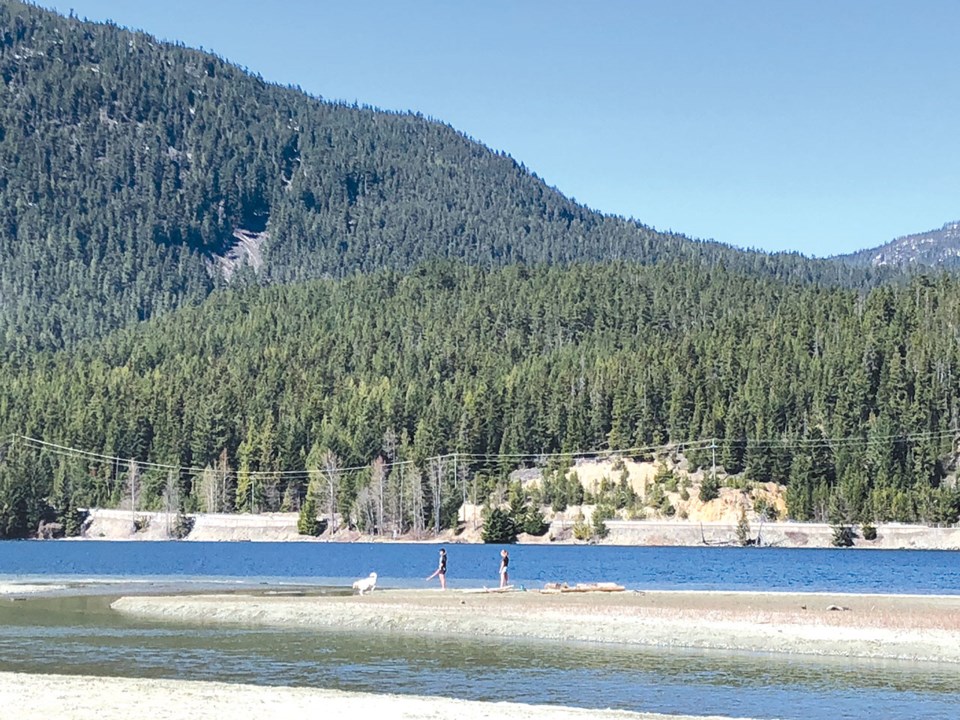Lynn Kriwoken has spent 40 years visiting her family’s rustic cabin on the shores of Alta Lake. As she has watched the resort grow up around it, and the rush of tourists that have followed, she can’t help but wonder what one of Whistler’s most prominent historical figures might think about it all.
“I often wonder what Myrtle Philip would say from an experiential perspective about Whistler,” said Kriwoken, whose grandfather-in-law was a contemporary of Myrtle and Alex Philip. “I think of her back in the ’40s with her fishing lodge down in Rainbow Park. The lakes are here for the enjoyment and use of the public and the environment, and we have to find ways to manage for all the values that are out there.”
Kriwoken is the current president of the Whistler Lakes Conservation Association (WLCA), a group of citizen scientists that monitor the health of Whistler’s lakes, efforts that recently earned them (and Kriwoken herself) annual awards from the BC Lake Stewardship Society. Retired from a career in water resource management at the province, Kriwoken joined other conservationists in expressing her concern for the impacts to Whistler’s other four destination lakes, with the municipality planning a months-long closure of Rainbow Park—the main access point to Alta Lake—for upgrades later this year.
“I think it’s inevitable,” she said. “People aren’t going to stop coming to Whistler.”
While there’s no firm data on lake use, Whistler’s parks are a good indicator.
According to municipal metrics, 2021 was the busiest year on record for resort parks, with Rainbow, Lost Lake, Lakeside and Alpha Lake parks visited an estimated 176,000 times, 35 per cent more than in 2020 and 77 per cent more than 2019.
Green Lake, Whistler’s largest lake and a popular spot for recreationalists, boaters, and floatplane pilots alike, stands to bear at least some of the overflow from Rainbow Park’s closure. A hub of biodiversity that is home to a wide variety of wildlife, including the more than 200 of the roughly 270 bird species in Whistler, Green Lake was the focus of a recent dossier the WLCA asked lakeside resident Fred Shandro to prepare, compiling the issues he’s noted on Green Lake over a period of more than 20 years.
In a nutshell, Shandro and other lakeside residents’ concerns centre on the use of motorized boats on the lake and the shoreline erosion caused by their wake.
“There are people down the lake from us who talk about being able to extend their arms two feet further under the lakeshore than they ever had before, which obviously resulted from the curling of these wakes,” Shandro said. “Honest efforts have been made to control where the wake is … but that isn’t the solution. It’s the wake itself that has to be stopped.”
In 2004, the Resort Municipality of Whistler (RMOW) passed regulations designating two no-wake, no-tow zones at either end of Green Lake, where speeds were restricted to a max of 10 kilometres an hour, in theory to minimize disturbances to residents and bird nesting sites. Studies have shown that a wake boat’s waves don’t dissipate for 300 metres, compared to roughly 30 m for traditional recreational watercraft, and create a disturbance to a depth of six to eight m.
As an award-winning environmentalist, Arthur De Jong shared Shandro’s view that motorized craft don’t belong on local lakes.
“As a climate advocate, I passionately support non-mechanized forms of transportation in Whistler, and motorboating is certainly not one of them,” he said.
But as a municipal councillor, he stressed that the RMOW has to balance its core priorities against available staff time and resources when considering Green Lake.
“Our staff have limited capacities, and this is not up there on the list with climate change and housing and the Balance Model—but it matters. So, I’m listening,” he said. “It’s multilayered and a public asset. I appreciate [Shandro’s dossier]; there certainly were some concerning points about public safety and the environmental impacts, but I need to get a collective input [from local environmental groups and RMOW staff], if you will, to gain a better understanding of where, potentially, we take all this.”
One idea Shandro has pushed for is implementing a reservation booth at the boat launch on the north end of Green Lake, which would allow the RMOW to better manage the number of boats on the water and educate visitors about the proper lake-going etiquette.
“It would stop the boaters that had no intention of obeying the regulations. Such as it is, there are boaters that go out there on long weekends that really don’t care what the sign says. So, at least it would stop those people,” Shandro said.




